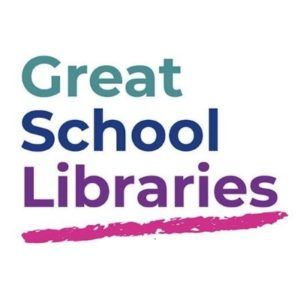
Great School Libraries: A UK Campaign Promoting An Essential Service
A new study published by the Great School Libraries campaign has found that one in eight schools in the UK do not have a designated library space.
In addition, schools with a higher proportion of economically disadvantaged children are twice as likely not to have one.
Primary (elementary) schools are less likely to have a library than a secondary (middle & high) schools.
 And if they do have a library space, Great School Libraries notes that they are often used as classrooms or meeting rooms rather than what they were designed for: reading and learning valuable inquiry skills, digital literacy, responsible researching, and more.
And if they do have a library space, Great School Libraries notes that they are often used as classrooms or meeting rooms rather than what they were designed for: reading and learning valuable inquiry skills, digital literacy, responsible researching, and more.
This is a result of a survey of 1,750 schools across England, Wales, and Northern Ireland. It also comes at a time when local governments are closing public libraries faster than you can blink.
We know that having a dedicated Library space with a trained Librarian has huge benefits on student well-being, not to mention their reading and writing skills, which translate to greater academic achievement.
Nick Poole, the chief executive of CILIP (Chartered Institute of Librarians and Information Professionals) has warned that “this research paints a picture of inequality of access and opportunity and insecure employment that we cannot accept. The findings highlight the urgency of securing national school library strategies and investment in England, Wales and Northern Ireland, drawing the example of Scotland.”
Cressida Cowell, author of the How to Train Your Dragon series and the UK’s Children’s Laureate has states that “This research shows inequality in Library provision that is a social mobility time bomb. Nobody has yet answered this question for me: if a child’s parents cannot afford books, if there isn’t a library in their school, and they don’t have opportunities to visit a public library, how on earth can they become a reader for pleasure?”
Put simply, the government needs to give schools enough money so that all schools can have a library and a librarian if they truly care about the future of youth in the UK.
Here in the UK it is mandatory for prisons to have libraries but not schools. I’m not saying prisons shouldn’t have libraries – they definitely should. But if the UK government is committed to ensuring prisoners have access to literature, then surely they should direct that same commitment to the children of this country. We know that people with low literacy rates in Canada are three times more likely to end up in prison. In the UK, 50% of prisoners are illiterate, more reason to ensure prisons have libraries but even more reason to ensure they are having appropriate access to literature before this tragedy even happens.
Unfortunately, severe funding cuts to schools in the UK means that school leaders have to make decisions they probably don’t want to make. If these leaders don’t see the value of a library, it’s often the first part of the school that goes.
This falls partly on us as librarians, in my opinion. We need to self promote better and we need to show the people that pull the strings the value that we add. By nature (and I’m painting a wide brush here) librarians are often hesitant to shout about their successes because it comes across like bragging. I know because I fell into that category once and then I just stopped caring and decided to highlight every success, every positive response from a parent or student, every library event, every partnership we made and plug into a blog which I send to my manager every six weeks.
I track stats, events, speaking engagements, anything that shows them how I’m creating a safe, positive space where students are learning, reading and becoming more intuitive researchers.
I can’t measure how starting a blog to capture these moments, no matter how big or small has changed my career but it has. Joining Twitter has also made a huge difference. Twitter can be a toxic garbage ditch in the best of times but my opinion is that if you surround yourself with forward thinking, positive people, you can safely hop over that ditch.
Of course, this is a multi-faceted issue and in some cases no amount of self promotion will save the library, but it can’t hurt.
To get involved, you can follow #GreatSchoolLibraries and their Twitter account @GreatSchLibs to find out about and share all of the amazing things school libraries do.








